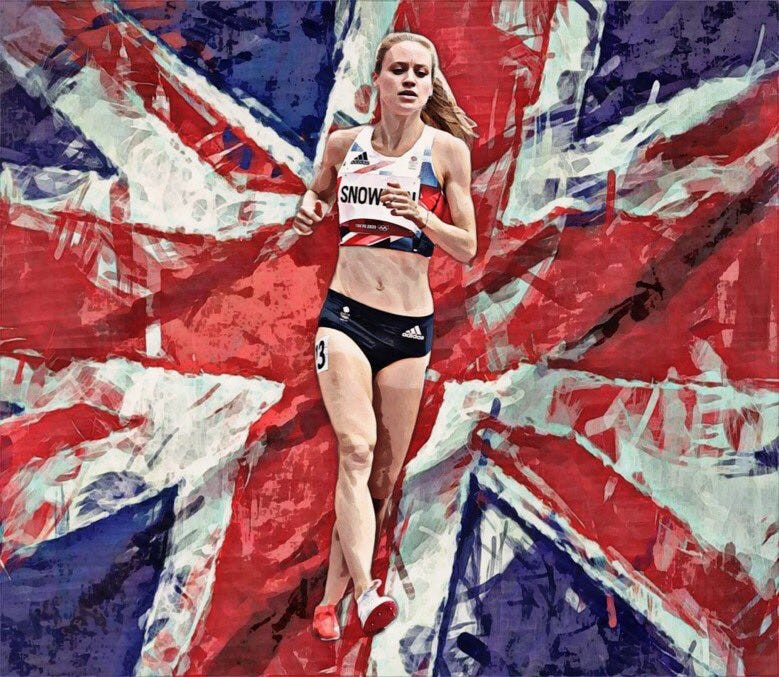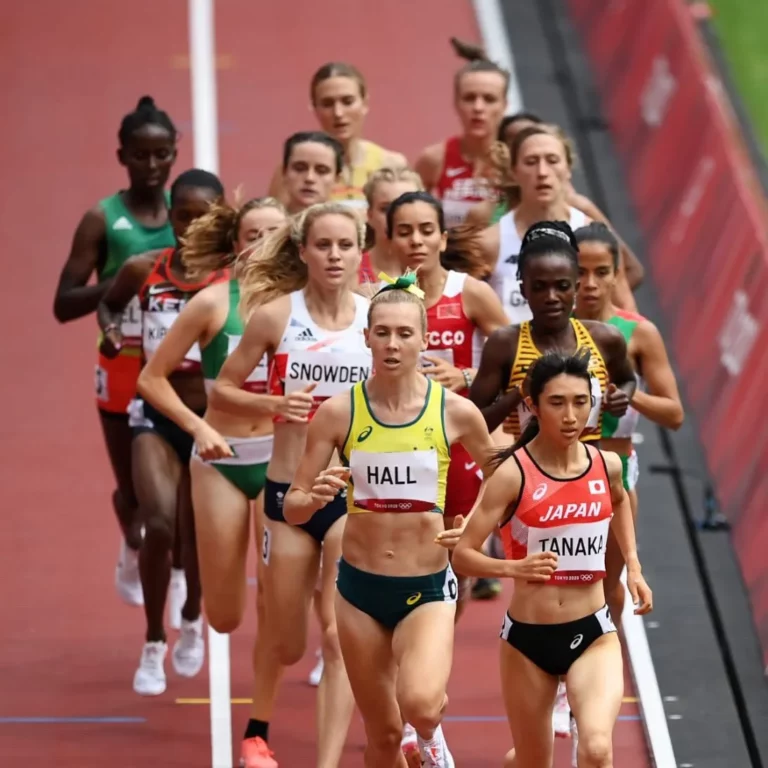#6 - Katie Snowden
British middle-distance runner. Olympian and medalist at British Athletics Championships
Katie Snowden is a British middle-distance runner. She represented England at the 2018 Commonwealth Games and she is a two-time medalist in the women’s 1500 metres event at the British Indoor Athletics Championships. She also won bronze in this event at the British Athletics Championships in 2020 and 2021. Whilst representing Great Britain at the 2020 Summer Olympics in Tokyo, Japan, Katie ran a personal best time of 4:02.77 in the third heat to qualify for the semi finals of the women’s 1500 metres.

If you hadn’t been an athlete, what would you have gone into after school or university? And why?
I studied Human Geography at Nottingham University as it was a broad subject and I thought it was really important to have a degree in case I wasn’t able to run professionally. I think if I wasn’t an athlete I’d have still wanted to be involved in the health and fitness industry in some way. I’m a fully qualified personal trainer so potentially I’d have pursued that in London where I live. I think I’d really enjoy helping others fulfil their goals, particularly now the significant contribution of exercise and fitness towards long term physical and mental health is widely recognised.
What experience or memory do you cherish most from your days of being a professional athlete?
Representing England at the 2022 Commonwealth Games in Birmingham will always be one of my most special memories, particularly as I was the only English athlete competing in my event (1500m). I’m fortunate to have experienced a home championships and I’ll never forget the noise of the crowd on the start line.
Competing at the 2021 Olympics in Tokyo was very special too, as going to an Olympic Games is the pinnacle of elite sport. However, due to Covid, no spectators were allowed in the stadium, and it was very strange to race in an empty one! I hope to make Paris 2024 and be able to have the full experience.
2022 was also a unique year for athletes as we had 3 major championships in the same summer (Worlds, Commonwealths and Europeans). Again, this was due to the pandemic and postponements that had happened as in a normal season we’d only have 1 or 2 champs to target. I competed at all 3 which had its challenges, but finishing 4th at Europeans was a nice confidence boost to be getting closer to the medals.
The prevalence of mental health problems in elite sport is incredibly high. Why do you think that is and how can we reduce it?
Elite sport is a very competitive and high-pressured environment, particularly track and field with it being an individual sport and the results being 100% transparent. It takes a huge amount of effort and commitment with often little reward and no guarantee of success. You’ve also got to prioritise other factors that impact a result (e.g good sleep, nutrition, recovery) so it has to become a lifestyle.
Injuries, which are inevitable when you’re treading a fine line to get the best out of yourself, are also I think a contributing factor to mental health problems within elite sport. If you get injured, the structure and purpose of your day changes completely as a result. This is difficult to adapt to, and it’s tough to be sidelined knowing your peers are still training and competing. On top of that, you may potentially then have financial worries from not being able to compete, and fear of losing support from sponsors.
Separating your self-identity from your sport so you don’t become too consumed by it I think helps mentally. Having other interests and hobbies and friendships which aren’t sport-related is beneficial too. It helps you to keep a good perspective and remember that there’s other things in life that matter and you can get enjoyment from too. Having something to fall back on, such as a university degree or a different career path, is also important, as elite sport can be very fickle and unpredictable.
Careers are full of ups and downs. What caused you pain and how did you deal with it?
I missed the 2019 season with plantar fasciitis and partially ruptured my plantar tendon. This meant I didn’t run for the best part of a year, and it’s very difficult for a middle-distance athlete to lose consistency of training and be away from a racing environment for an extended period of time.
I tried to overcome this by replicating my weekly running schedule by cross-training instead (biking and swimming/aqua jogging). That helped me keep a sense of structure and purpose to my day. Keeping regular communication with my coach was also important so I still felt involved with my training group, as well as making sure to enjoy spending time with friends and doing social activities, which aren’t always possible when in full training or abroad on altitude camps or racing.

How are you thinking and planning for retirement and the transition away from competing as a full-time athlete?
I haven’t retired yet, but I have a personal training qualification from Loughborough so that is potentially something I want to explore when I stop competing. I would struggle to go into an office job with set working hours having had flexibility with my running, so that is something I don’t plan to do at least for a while!
Do you have a favourite quote or saying? Why does it resonate with you?
“If you could erase all the mistakes of your past, you would erase all of the wisdom of your present. Remember the lesson, not the disappointment.“
I think it’s easy as athletes to be very critical and think what you could have done differently – whether it be with training, executing a race, avoiding injury; but having experience in elite sport is invaluable and if you learn something from a mistake then you’re going to be better equipped for next time a similar situation arises.
Any parting thoughts for those youngsters that might be about to embark on a pro career, those in the middle of one, or those that might be coming towards the end?
Keep a balance and have other interests so you keep things in perspective.
Keep in touch with your friends.
Remember the path to success isn’t linear and you’re always going to face challenges and obstacles along the way – but you can learn a lot from these.
Don’t compare yourself to others.
Learn how to lose, and develop the skill of dealing with the negative emotions that come with it.
Train in groups or with teammates when you can, it’s easier to stay motivated if others are there and you’re supporting each other.
Finally, how can people follow what you’re up to and potentially reach out?
Email: katie_snowden@hotmail.com
Twitter: https://twitter.com/katiesnowden13
Instagram: katie_snowden
